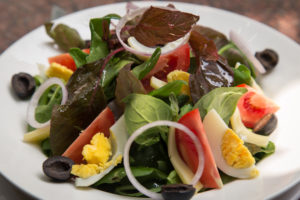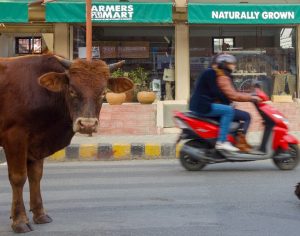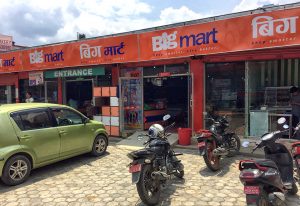
I really wanted to find out exactly how many bakeries there are in Kathmandu for you, but that’s kinda like asking how many grains of sand are on the beach, no? I’m sure the Bureau of Labour and Statistics might know– do we even have one of those? But I doubt anyone’s number would be even close to accurate, after all, my neighbour bakes and sells doughnuts, and surely she (or hundreds of other home businesses) wouldn’t be accounted for by any World Bank or Government of Nepal statistic.
It’s one of the things that I found most surprising about this city, and reason #1 why I instantly fell in love with it: for the convenience of having baked goods just 50 feet from my front door, no matter where I was.
So I asked my favourite baker, Nirmal KC of Hermann’s fame, “How did this all come about… so many German, French, Dutch and Nepali bakeries everywhere? Even in the most hinter hills of Nepal, I can always walk to a bakery…”
“Well, I think it has to do with our changing culture, where we Nepalis used to have late morning dal bhat, but now we have to go the office early, and have breakfast, which is usually with something baked. Then there is lunch…with sandwiches…”
So after having milk tea and a blueberry tart with Nirmal, I realised how all this made perfect sense, and how the idea of bread and culture revealed a shared common root with all of migrant-and-working humanity, through perhaps all of time.
What an epiphany; let me explain…
The history of sharing bread runs wide and deep; for example there are dozens of biblical quotes like this one, from Leviticus 2:6:
“You shall break it (bread) into bits and pour oil on it; it is a grain offering.”
Which slots nicely into how bread (possibly) has made its way into Nepali culture: sharing grain is just one of the many grain-related rituals common amongst all world religions: this idea of offering grain or bread to both humans and gods alike.
I suspect that the modern bakery was brought to Nepal by Christians, either while trekking or ministerialising their way across Asia. But who knows, it may have been a Nepali travelling entrepreneur, who visited Egypt around 8,000 BC,and brought back one of the first quern stones to better his roti business.
Or perhaps the idea of baking and selling bread is baked right into our DNA, as there is evidence of baked goods in the guts of prehistoric human fossils, dating back possibly 30,000 years or more. The historical record is not clear.
I can only speak for myself when I say that I come from a lineage of humans that must eat bread, and eat it every day I do.
Early during the 20th century, my ancestors migrated from Russia (with love) to NYC, and brought with them the art of making Jewish-baked goods, populating Brooklyn with as many bakeries as we see here in the Kathmandu today. Bakeries are a business that just makes perfect business sense, when near 100% of the population is your market, and your turnover is hot and tasty.
Of course, baked goods have (allegedly) caused as many deaths this past few centuries as World War I; yet a high-carbohydrate diet certainly makes good sense in Nepal, as well as in the other high-up places on the planet. So perhaps that’s why there are so many bakeries on the way up to Everest! The historical record is also not clear here, either.
But whatever the record--or the number–or the origin of bakeries in Kathmandu, I am so thankful that I live in a land where I can get a cinnamon bun whenever I please. And have fresh-baked French baguettes delivered to my door every Tuesday – thank you Frenchman Fred.
My baked-goods consumption is certainly a childhood thing, as each Saturday while growing up,we would have tons of fresh bagels that sandwiched cream cheese and lox for anyone that gathered around the table. Then on Sundays (with my non-Jewish friends), there would always be fruit-centered Danish pastries to pair with hot coffee. This was all brought to us by the thousands of bakers living amongst us in downtown Brooklyn.
But as I wrote in “The disappearing Nepali cold store” a few weeks back, bakeries could eventually become a causality of savage modernisation and global capitalism. But I sure hope not, as I don’t know if I can live without white bread from the Annapurna Hotel, bagels from the farmer’s market and croissants from Chez Caroline…
Let me know what baked goods you most consume, if any, in the comment section below…
Jigs Gaton is a quirky-kinda guy, hailing from America and happily living in Dhobighat with family, friends and a 40kg dog – who like everyone else on the planet, likes to break bread with family, friends, and other animals.
























